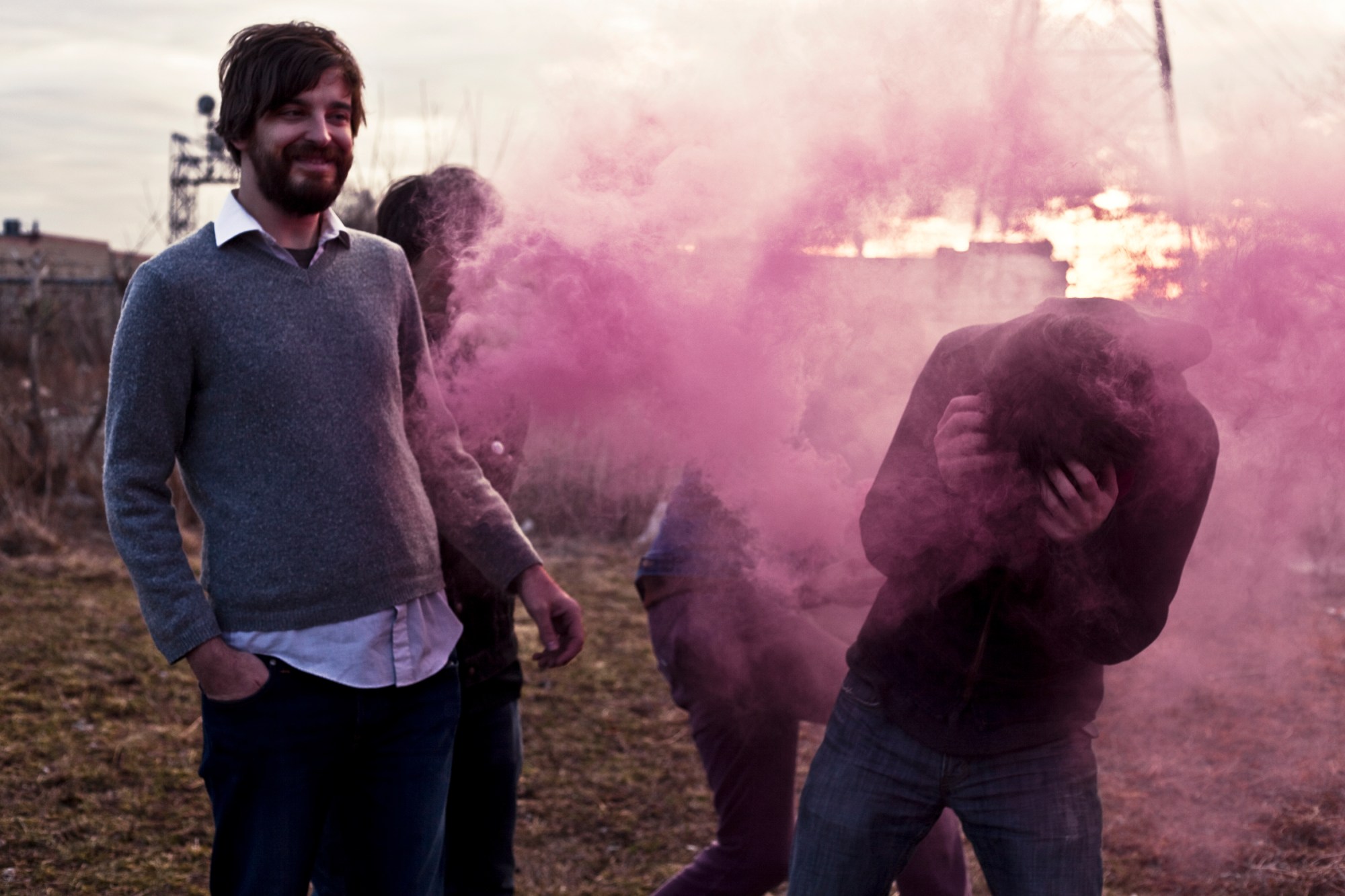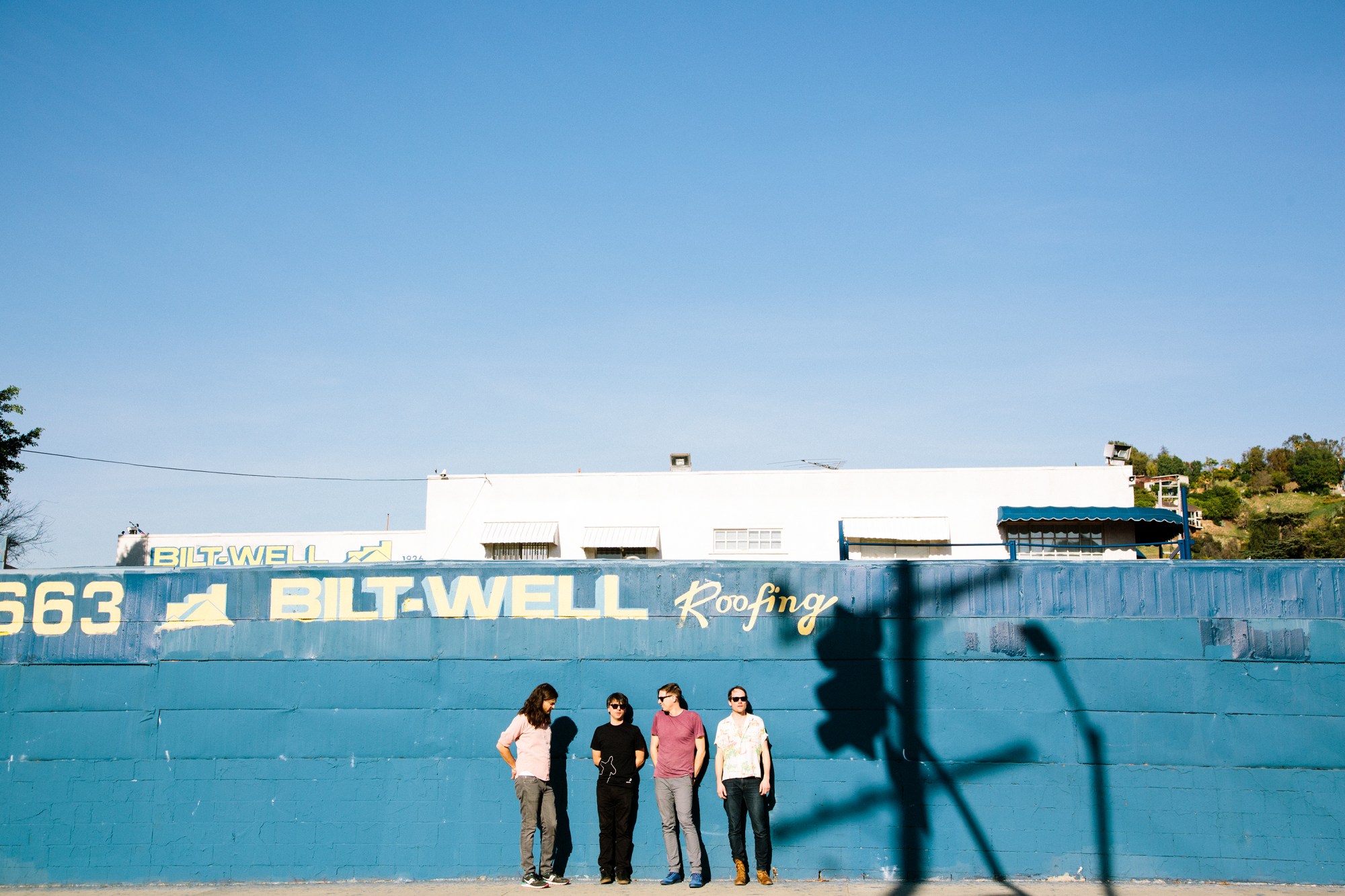As Canada’s premiere experimentalists, Holy Fuck have pioneered using junk to essentially change the way we think about making music. The band have a history of thinking outside the box, employing alternative methods for making their alternative music (to wit: the way they use non-instruments including toy phaser guns). Their punchy, rhythm-fuelled instrumentals have cropped up in episodes of Breaking Bad and Mr Robot, and made a fanboy of Thom Yorke. They were signed to infamous record label / muso hot house Young Turks for a bit and MIA took them on tour with her.
What Holy Fuck do that’s so special is that they make modern electronic dance-punk, but they just do it the hard way. So instead of using the latest music editing programmes to just loop and splice their sounds, they instead use oddball and analogue techniques to mimic those processes. The really impressive thing is that they make it seem completely effortless and that’s the magic.
Ahead of their show at Plisskën Festival, we spoke with Brian Borcherdt and Graham Walsh from Holy Fuck about the thinking and inspiration behind their alt approach.
Picture this: it’s the early 2000s, Holy Fuck don’t exist as a band, they’re just four dudes living in Canada. Borcherdt grew up on the east coast of Canada in the 1990s. Before Holy Fuck he worked in motion picture editing and was in a bunch of bands like By Divine Right, Burnt Black and Cafe’ Selectronique. In terms of mainstream culture, Borcherdt says Canada in the 90s was pretty bland and lacking in racial diversity.
“There was this climate of believing that to be successful you’d have to please a very rural, conservative audience. Canada had a very risk averse way of treating culture”, berates Borcherdt, “It had a very safe image. I saw that bands who were successful outside of Canada were finding it had to do with being bold and I took that to heart. It inspired me to just be bold and not feel like we had to please everyone and that it was okay to get bad reviews as long as you believe in what you’re doing and want to make a statement…. We weren’t worried if it sounded good, we believed in the idea.”

One of the artists that inspired Borcherdt’s approach was Peaches, who at that time was living in Toronto (she’s mostly based in Berlin now). Borcherdt opened for one of her shows with a band that basically was a prototype precursor to Holy Fuck. “The next day when I got back, Peaches had come and put a tape of the show in my mailbox with a little note on it thanking us for playing. That blew me away,” says Borcherdt, “I went to all of the Peaches concerts in Toronto and I thought what she was doing was so cool, it was so fun and it had a message – challenging of social norms, gender biases.”
Walsh, who has engineer and producer for Canadian bands like METZ, grew up in a suburban town just outside of Toronto. He credits his big brother for expanding his mind when he was younger, introducing him to the world beyond that safe Canadian mainstream. Walsh’s brother went to university in Windsor, Ontario in the mid 90s, when the Detroit techno scene was blowing up.
“One of the first raves he took me to was a Richie Hawtin rave with Autechre and that was huge,” enthuses Walsh. “Before then, going clubbing for me was going to the meat market in downtown Toronto and the goal was to get drunk and the music they were playing was top 40 dance-y music. Then he took me to this rave and there were a lot of drugs happening but it was mostly about the music and the music was weird and different and awesome.”
That music and Walsh’s brother’s record collection included DJ ESP [aka Woody McBride], Larry Heard from Fingers Inc. and techno artists like DJ Pierre. This early influence is audible in their song structure and arrangement.
Both Borcherdt and Walsh cite Canada’s natural beauty as definite creative inspiration, at least on a subconscious level. “There’s a certain austerity to driving across the prairies for a couple days just to get to your next gig”, says Walsh, “It definitely seeps into something subconscious.” The band got together officially back in 2004 in Yarmouth, Nova Scotia and were officially based in Toronto, but over the last few years they’ve spread out geographically to Halifax and Upstate New York where Borcherdt is now living.
“Brian’s super duper nature guy,” laughs Walsh, “he’s just moved to the woods and he’s thriving up there and I’m sure that has affected what you’re doing creatively.”
“I stacked wood yesterday,” declares Borcherdt, “but I hired someone else to chop it. I’m the youngest in my family and the rule of the woods when I was growing up was that my older brother had to do the chopping and I did more of the stacking. Now that I’m here alone I have to hire an older brother [to do the chopping].”
“By limiting your control over the medium that you’re trying to work with, you’re going to get unexpected results and have to stand behind them or abandon them.”
In spite of their current geographical distance, Holy Fuck are adamant they’ve not become a file sharing band, “We’re not a Skype band”, exclaims Walsh. “Brian’s got a studio at his house and I’ve got one here so he and I can individually work and tweak away and work on things and bring it back to each other to the table and compare and contrast idea,” says Walsh. “We still create nearly all the music and especially the core of what we’re doing together in one room with all four of us.”
Their initial music making methodology was all about rejecting their influences and picking up barely-musical devices or “non-instruments” in favour of adopting a more DIY approach – including a 35mm film synchroniser. This was partly to see what unexpected sounds they would result in but was also about the idea of self imposed limitations as creative catalysts. Holy Fuck are now master craftsmen when it comes to applying this method to their music making. Their initial compositions were mostly percussive and based around tonal changes, they’ve since refined their blip-hop instrumentals, working in actual studios to create actual ‘songs’ with more overt melodic hooks.
“By limiting your control over the medium that you’re trying to work with, you’re going to get unexpected results and have to stand behind them or abandon them,” Borcherdt explains. “I like that idea, let’s limit ourselves so that maybe we won’t even like the music we make but at least it’ll be expressing something different.”
“It did kind of suck at first,” Graham laughs.
Borcherdt says that not necessarily simpler to do something that sounds simple or minimal or that uses applies self-imposed limitations. “It’s a challenge to learn to use something to it’s upmost ability,” insists Borcherdt, “It’s a lesson to not overthink something.”
Walsh thinks limitations puts you in a different headspace and that younger generations maybe need that even more, just because of the way equipment is going these days. “It’s limitless,” says Walsh, theorising that there are now so many options for things to make music with, that you then start to obsess over what gear you’re going to use to make your music, as opposed to just focusing on making music. Which is why he prefers to use equipment like the Casio SK1 keyboard – a pretty basic keyboard used in a lot of early hip-hop. The Holy Fuck theory is that when you set limitations, for example with equipment, you’re able to focus on what’s important – the initial ideas and the melodies. Walsh concludes that, “Anything above that is just icing but you’re making a better cake for everything to sit on if you’re only focusing on the fundamental ideas.”
Holy Fuck play Plisskën Festival in Athens
